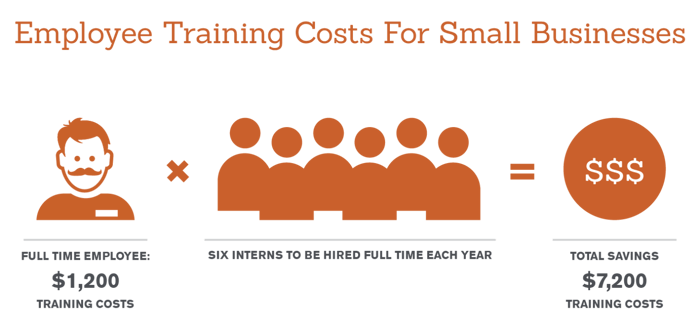When you hear the word “intern,” what do you think?
Picture it: Philadelphia. Spring Semester, 2001.
The lone, silver lining to the student’s semester-long tenure came when one really awesome account executive allowed her to help with research projects and compile company backgrounders on three prospective clients. In addition to internet research, the account exec directed her to the Advertising Red Book and other industry tomes of arcane knowledge. The intern appreciated being given an opportunity to dig in and do meaningful work. Likewise, the account executive was happy to have extra time to devote to other client-facing tasks.
That young intern was me. And while I’ve ditched the khaki pencil skirts and “gone back to the velvet underground” of wearing Stevie Nicks gypsy attire to the office on occasion, I vividly remember how big a letdown that internship was, but was grateful for that small window of opportunity to learn and be able to help someone at the same time.
While I may not have learned as much as I wanted from that internship, I came away with an understanding that companies should be mindful of their time, funds, resources, and people.
The Bottom Line: The Cost & Benefits of Training Interns as Prospective Employees
When you think about good uses of time and money for a company, your internship program may not necessarily spring to mind. But it should!
It was recently reported that 61 out of every 1,000 hires in the Communications and Public Relations industries started as interns. If you have a company of 100 people, that means that approximately 6.1% of your coworkers may have once interned with your company before they were hired. And that 6.1% can make a really big impact on your day-to-day output.

Building a Meaningful Internship Program
Creating a Strong Curriculum
For students, an internship is still a learning experience. To make sure interns learn and the company is protected from risk, a well-thought training program is critical.
“In the past 2 years, Seer’s Internship program has become increasingly structured in a good way,” said Lauren. “The trainings are similar to those of full-fledged Seer new-hires, but more of a Cliff’s Notes version.” Interns are given the basics of training and a foundational understanding of the building blocks of concepts and procedures, but aren’t trained on tools that require a user license that are available to new hires.
By being paired with a mentor, the intern has the opportunity to build strengths in key areas that their mentor knows they want to develop. Their mentor will conduct a mid-semester and end-of-semester evaluation, but overall, they are there to support their goals and point them in the direction of where they can develop their skills and who that intern should team up with in order to do so.
Feedback from Team Members & Interns is Crucial to Success
At Seer, an intern’s first four weeks are packed with over 35 hours of one-on-one trainings followed by ad hoc projects in a given area of focus that interns choose for their development. Based on prior feedback, Lauren noted that Seer’s People Team have seen an increasing demand from interns for worksheets or activities to help put that training to practical use and encourage retention of what was learned following training sessions.
“That wasn’t doing any favors to the interns or the team. It wound up being super overwhelming for each Division and also resulted in too much downtime for the interns,” said Lauren. “We’re always collecting feedback, and that’s how we shape the internship.”

Devoting one month out of a three-month internship to just one facet of digital marketing wasn’t giving interns the opportunity to hone an area of focus and work on projects that allowed them to shine and serve up something meaningful for themselves and the company. After re-evaluating the rotational internship, Seer decided a much more customizable approach tailored to individual interns would make for a more rewarding experience.
Midway through the internship, as well as at the end, Seer’s internship coordinator sits down with interns and their mentors to gather more feedback and discuss a form filled out prior to the interview.
- How has your experience been thus far?
- Who have you learned the most from?
- Who has been a really impactful mentor?
- What would you do to improve the internship experience?
- What was the workload like?
During the feedback meeting, Seer’s internship coordinator digs deeper into the responses to make sure interns understood their voices were heard and to get more stories and discoveries from mentors about interns’ progress that may not have been covered on the form.
Empowering Interns to Own Their Workload & Stand Out
Interns are encouraged to manage their their own projects and their own time. “They’re able to say no to requests if they’re overwhelmed,” said Lauren. “Interns need to be able to take a look at what they’re working on, what’s due when, and make sure they’re not over-promising and under-delivering. I think that’s a good professional skill—to teach them how to say ‘no.’ Not just at Seer, but throughout their career, wherever they may land. That’s a hard thing to say, especially when you are still in school and eager to please and you have people coming up to you asking for help on projects.”
So, what was it about these interns that made them stand out?
Once interns are involved in the program, many of these humble, ambitious students put the pedal to the metal and run with projects of their own that make a big impact on how day-to-day work is done.
- One recent SEO intern-turned-hire presented a 60-slide deck to a client based on her findings on a competitive analysis.
- Another SEO intern wrote a blog-post on Snapchat Geofilters and it was featured on Marketingland.com. (Did we mention that this intern is only a college sophomore?)
- Seer’s newest Analytics-intern-turned-hire created several innovative multi-segment monthly reports for clients and conducted a weekly analysis for another client in the healthcare space.
A Rewarding Internship Program Yields Rewards for Everyone
In offering interns a rich experience that bridges the gap between learning and working in their chosen field, companies can benefit from driven interns eager to prove their mettle in a competitive landscape. Additionally, they bring fresh perspectives and ideas to your company. By training them before they make their formal entry to the marketing field, you can help shape them and your company by giving them the tools they need to excel. Even though you’re helping an intern to build his or her career, you just may find yourself learning something from them and your entire team benefitting from that knowledge in the process.
Learn more about the internship opportunities at Seer!



